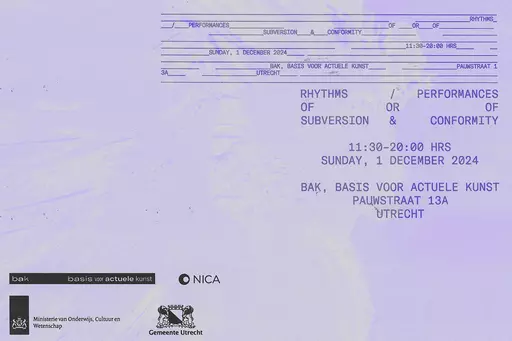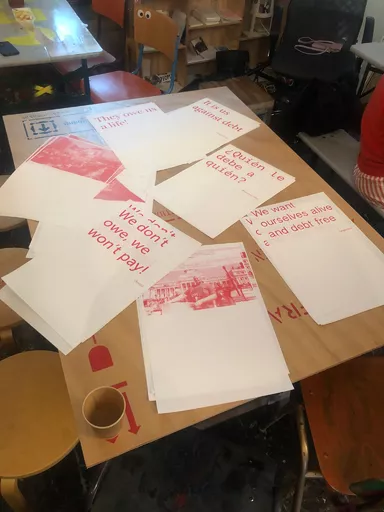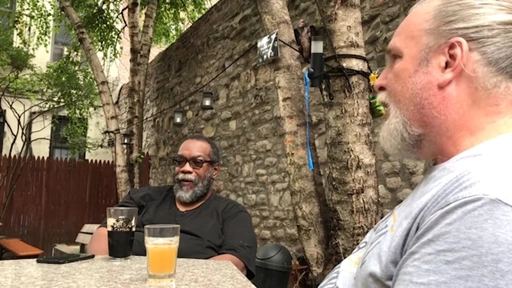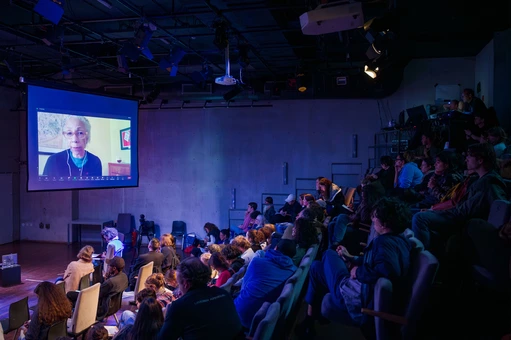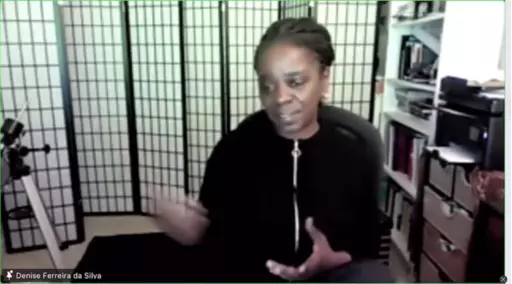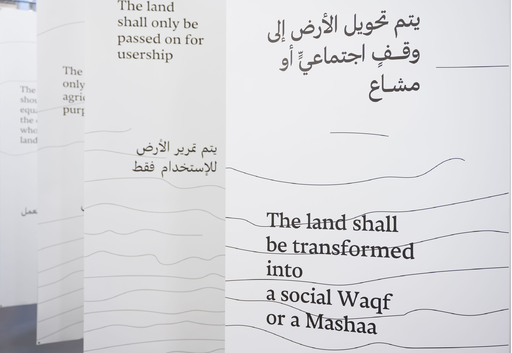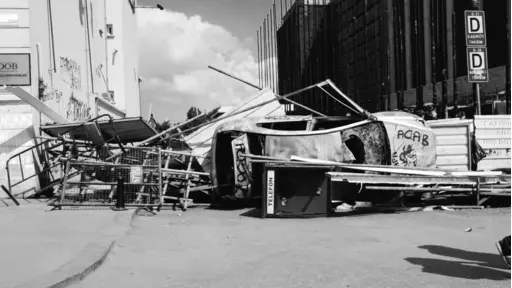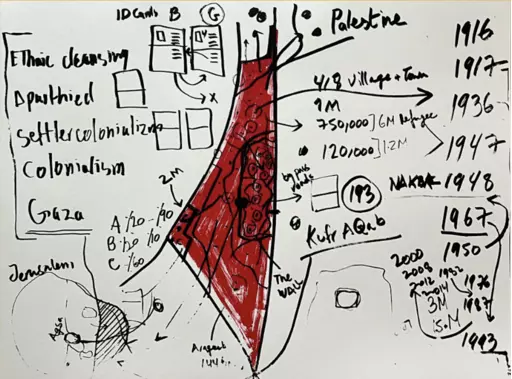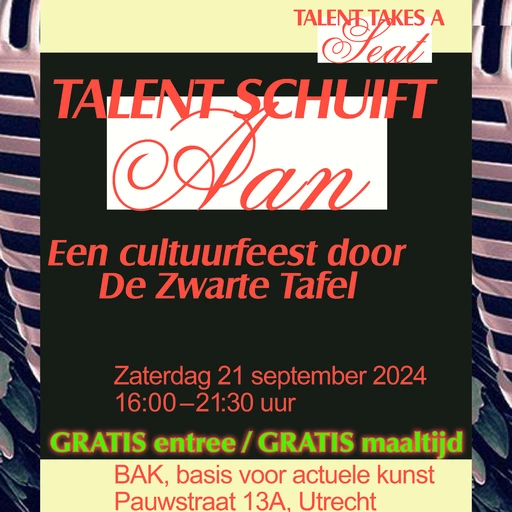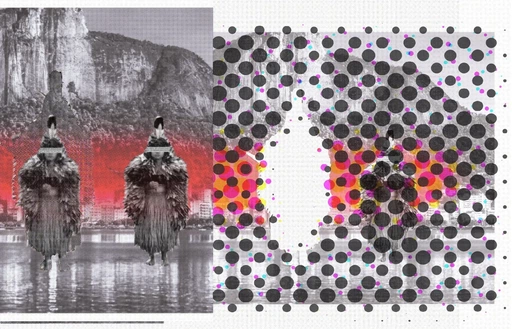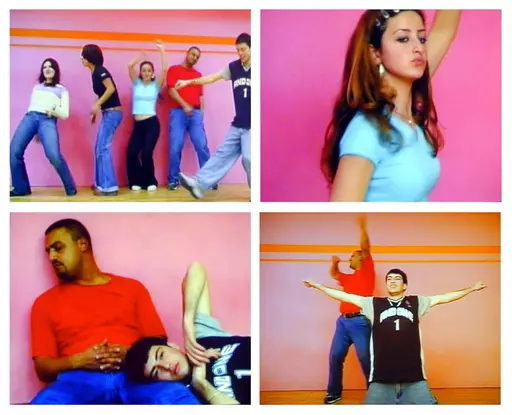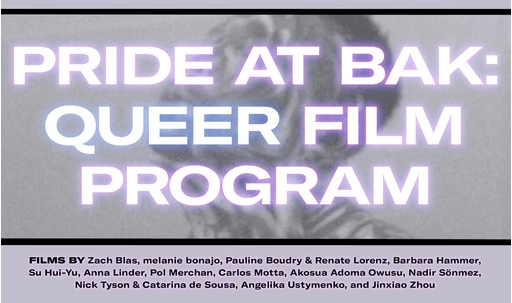Basecamp for Tactical Imaginaries: unbuilds and rebuilds cultural infrastructure to collectively confront the urgencies of today. Due to renovations the building is closed, we will reopen on the 8th of September with a new programme. For updates and upcoming events, please visit this website.
Basecamp for Tactical Imaginaries: unbuilds and rebuilds cultural infrastructure to collectively confront the urgencies of today. Due to renovations the building is closed, we will reopen on the 8th of September with a new programme. For updates and upcoming events, please visit this website.
Basecamp
Basecamp for Tactical Imaginaries unbuilds and rebuilds cultural infrastructure to collectively confront the urgencies of today.
To meet this moment, in which political, social, economic, and climate crises overlap and amplify each other, requires direct action and intervention. Basecamp radically embodies cultural infrastructure in order to leverage the imagining possible for it. Imagining is central to life in which we convene for resilience, survival, renewal and repair. Basecamp offers itself as site and structure towards intimacy, critique, exploration, possibility, and action.
Read more...
17 May 2025
Rehearsal of Justice: series
Rehearsal of Justice is a series of participatory gatherings in May and June where communities and individuals come together to rehearse and enact justice. Concept, dramaturgy and host Ehsan Fardjadniya.23 May 2025
please register at programma@bakonline.org for zoomlink
Consent Lab Series with Joy Mariama Smith
resheduled: Constent Lab Debrief/reflection online meeting. Friday 13 June 9:00-11:00please register at programma@bakonline.org for zoomlink
3 June 2025
Bring your slogans and any spare cardboard!
Protest art making session
against the Nato Summit.Bring your slogans and any spare cardboard!
8 June 2025
Zapatismo Study Group
Come join us in this collective exploration of other worlds possible, here and there. And to share some warm zapatista coffee with each other12 June 2025
b.ASIC a.CTIVIST k.ITCHEN VOKU
This week we invite our extended network to gather and get to know the whereabouts and vision of Basecamp for Tactical Imaginaries.14 June 2025
Rehearsal of Justice: gathering two and three
Join us for a powerful gathering of legal experts, artists, activists and experience experts.18 June 2025
MAFA Graduation Show: Meanwhile
This exhibition embraces the instability of bodies, histories, and materials in flux.19 June 2025
b.ASIC a.CTIVIST k.ITCHEN VOKU
A space where culture, care, and memory are passed through hands and habits. Knowledge often lives not in books, but in the minor movements of the body: the way we chop, stir, taste. #KitchenTakeover by artists Changli Cui Luo and Mirella Moschella26 June 2025
b.ASIC a.CTIVIST k.ITCHEN VOKU
Open To Public- Donation Based31 March 2025
Welcome to the Basecamp
In this blog I, Angelina Kumar, artist and fellow pioneer for positive change, will attempt, bi-weekly, to capture and share glimpses and insights of the brave and ever evolving journey that is unfolding at the Basecamp for tactical Imaginaries.3 April 2025
All things great and small
This day and meal has given me a refreshing glimpse into potential prospects for the future. Especially, when we work together to make space and place for regenerative ways of being where non-human life is fostered daily.17 April 2025
Glossary of Soup Making
“It is quite a good metaphor and practice to initiate conversations about commoning and in general about politicising food. Because soup is something that everyone relates too since the dawn of time. Some people say that we even come from primordial bro24 April 2025
Memory & Hospicing
This week I was pleasantly surprised to hear that medicine was being explored at the Basecamp. Garage School of Medicine, led by Kari Robertson and Santiago Pinyol. A sweet couple with their 5-year-old daughter.8 May 2025
Reading Counter Power
We need core shared values. Open spaces where we can practice enacting what it means to live in a different kind of world that we envision.29 May 2025
Storytelling: Hi-Story
The stories that are told and shared are the ones that we remember in history, so it’s important to question whose stories are being told and who is telling the story?12 June 2025
Storytelling Workshop (Part 2)
Storytelling is a tool of advocacy. By telling your story in your own words you make people aware of your journey and history.Program
Message from BAK Supervisory Board: Maria Hlavajova bids farewell to BAK, basis voor actuele kunst, Utrecht
On 30 June 2025, after 25 years of service, BAK’s founding director Maria Hlavajova will step down from her position as general director.
1 April 2025
30 June 2025
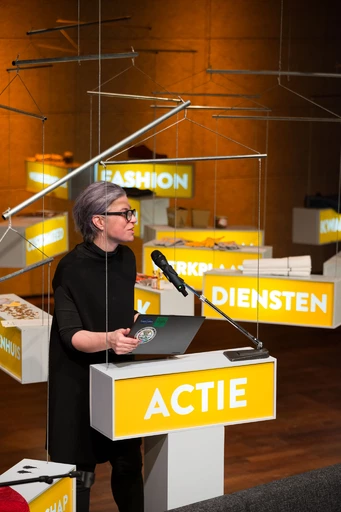
Program
BAK announces Basecamp for Tactical Imaginaries: Building Cultural Infrastructure Anew
Marking the beginning of a new phase, BAK, basis voor actuele kunst, Utrecht embarks upon a six-month period of thinking and planning.
1 January 2025
30 June 2025
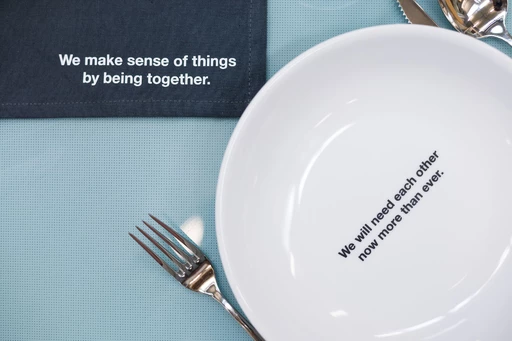
Program
The Open Kitchen FreeShop
The FreeShop is a place where nothing is for sale, and everything is free.
1 January 2025
31 December 2025
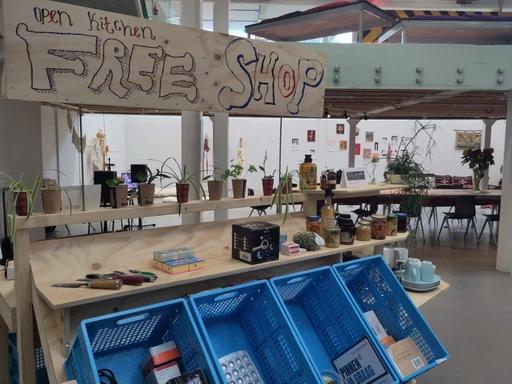
Program
Climate Propagandas Congregation
A new two-day congregation to study climate propagandas to propagate alternative presents and futures.
14 December 2024
15 December 2024
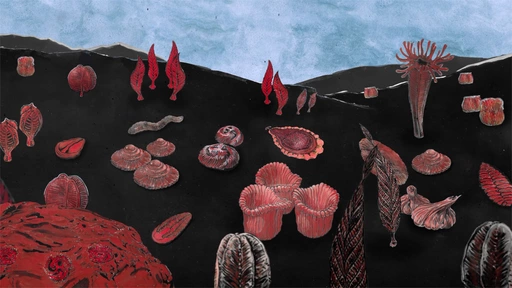
Program
Rhythms/Performances of Subversion & Conformity
A symposium that centers on a table reading of Marival (1996) by Felix de Rooy, a landmark play about Caribbean queer experience in the shadow of Dutch postcolonialism.
1 December 2024
1 December 2024
